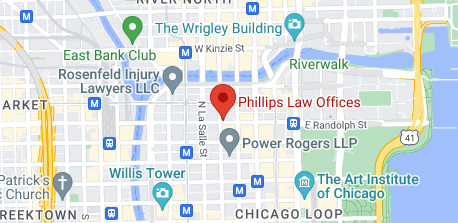
Call now for your
Free Consultation:

Free Consultation:

Free Consultation:
Nursing home abuse can take many forms, from outright physical violence to instances of subtle emotional abuse, including verbal abuse. While verbal abuse may not involve physical contact, it can be just as damaging to the psyche and wellbeing of elderly patients as more obvious forms of abuse. If someone you love has been the victim of verbal abuse in a nursing home, it’s important to know your legal rights. Your loved one may be entitled to damages and compensation for harm suffered.
The National Center on Elder Abuse defines verbal abuse as the infliction of pain, anguish, or distress through verbal acts. Nursing home staff may use verbal abuse in an attempt to coerce, degrade, frighten or punish nursing home residents. Some of the most common forms of verbal abuse include, but are not limited to:
Some examples of verbal abuse are more blatant than others, such as when a staff member cruelly exploits their authority to harass or bully a vulnerable nursing home resident. More often than not, caregivers don’t intend to harm patients, but over time allow their joking or teasing to get out of hand. For instance, a staff member who becomes agitated with a resident’s behavior may threaten to restrict social activities or food for that resident. Research has shown that nursing homes staffed by overworked, inadequately trained or poorly supervised employees are more likely to foster abusive environments. It’s the responsibility of both management and staff to prevent and stop emotional abuse such as verbal abuse from occurring.
Nursing home residents rely on caregivers for every need, from medical treatment to basic necessities like food and water. For many elderly people, nursing home staff members also provide an important source of companionship. Understandably, abuse can leave victims feeling isolated and helpless. In addition, many sufferers of elder abuse may be hesitant to report abusive behavior out of embarrassment or fear of retaliation. Not knowing where to turn, victims of nursing home misconduct often become withdrawn or depressed. Over time, emotional suffering as a consequence of verbal abuse can translate into physical ailments, such as weakening health, deteriorating mental state or even premature death.
The first step in helping victims of verbal abuse is putting a stop to the harmful behavior. If you have a loved one in a nursing home, it’s important to be aware of the signs and symptoms of verbal abuse, such as:
There is no justification for abusive behavior that violates the trust and endangers the emotional and physical health of elderly patients. Nursing homes have a responsibility to ensure residents are treated with an appropriate level of care and respect. When nursing home staff or management fail to protect residents by upholding a proper standard of care, they should be held accountable for their negligence or misconduct.
At Phillips Law Offices, our team of experienced personal injury attorneys has been successfully representing the victims of nursing home abuse and their families for more than 65 years. Our Illinois nursing home neglect lawyers are committed to protecting the rights of our elderly citizens and vigorously fighting for justice when those rights are violated. If you or someone you love has endured emotional mistreatment while under the care of a nursing home, we can help you obtain the maximum financial compensation to which you are entitled. Contact the attorneys at Phillips Law Offices today at (312) 346-4262 or online to learn about your legal options with a free consultation.

161 N Clark St #4925
Chicago, IL 60601
(312) 346-4262
Copyright 2023 Phillipslawoffices. All Right Reserved